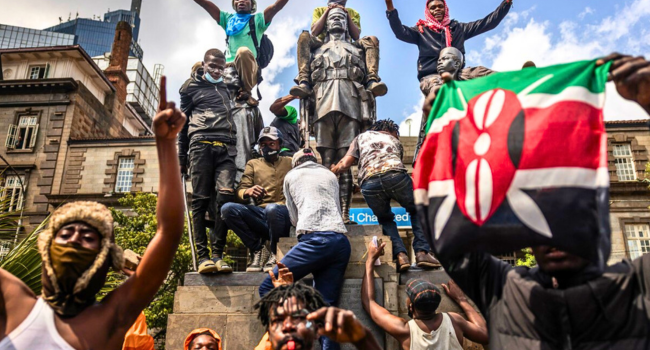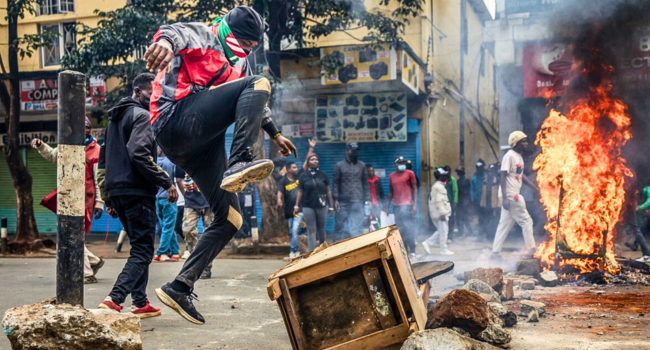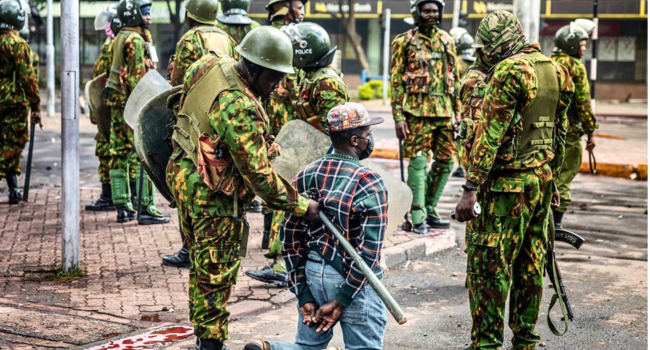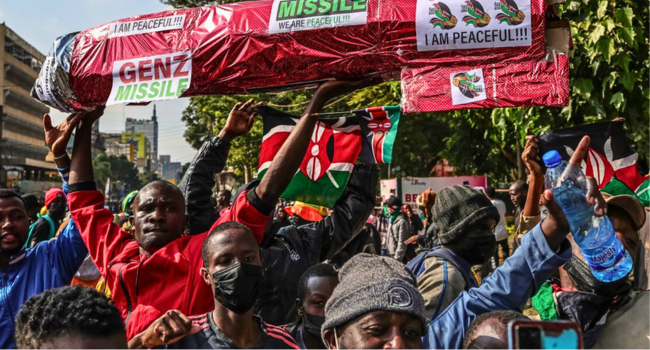Commemorative marches in Kenya marking one year since deadly anti-government protests turned violent on Wednesday, with two people killed and chaotic scenes unfolding in Nairobi and other towns. Police fired tear gas, blocked key roads, and sealed off government buildings with barbed wire as confrontations escalated.
The protests, initially peaceful, drew thousands—including families of last year’s victims—seeking justice and demanding government accountability. Demonstrators chanted against police brutality, high taxation, and the leadership of President William Ruto.
“We are marching against police brutality, government oppression, and economic hardship,” said Anthony, 25, a protester selling flags in Nairobi.
Violence erupted when protesters began throwing stones at security forces. In the town of Matuu, 100 km from the capital, two people were reportedly shot dead, with local media alleging police opened fire on demonstrators. In Nairobi, several were injured, including at least one police officer. One man, believed to be a plainclothes officer, was beaten by the crowd.

Wednesday’s unrest came exactly one year after a mass protest over tax hikes and economic strain peaked with the storming of parliament, leaving at least 60 people dead in weeks of clashes. Unidentified officers were previously caught on video firing at civilians.
This year’s protest saw renewed calls for systemic change. “The system is rotten, the system is rogue,” said Florence Achala, a demonstrator in Nairobi.

As tensions grew, police used water cannons and tear gas to disperse protesters. The government ordered TV and radio stations to halt live coverage, while Telegram was restricted, according to internet watchdog NetBlocks. Demonstrations spread to other cities, including Mombasa.
Anger has intensified over recent abuses, including the death of a teacher in police custody. Last week, peaceful demonstrators were attacked by motorbike-riding gangs armed with whips and clubs, reportedly acting in coordination with police. Western embassies, including those of the U.S., U.K., and Germany, condemned the use of “hired goons” to disrupt protests.
Political analyst Javas Bigambo warned of potential exploitation by political factions: “If we were serious about commemorating June 25th, it should be marked with solemnity, prayer, and restraint.”

President Ruto, elected in 2022 on promises of economic reform, is facing mounting disillusionment. Despite shelving a controversial finance bill last year, critics accuse his administration of clamping down on dissent and tolerating abductions of government critics. Rights groups say over 80 people have disappeared since last year, with many still missing.
While Ruto has pledged to end such abuses, he defended security forces in a speech Tuesday, declaring he would “stand by” the police.


